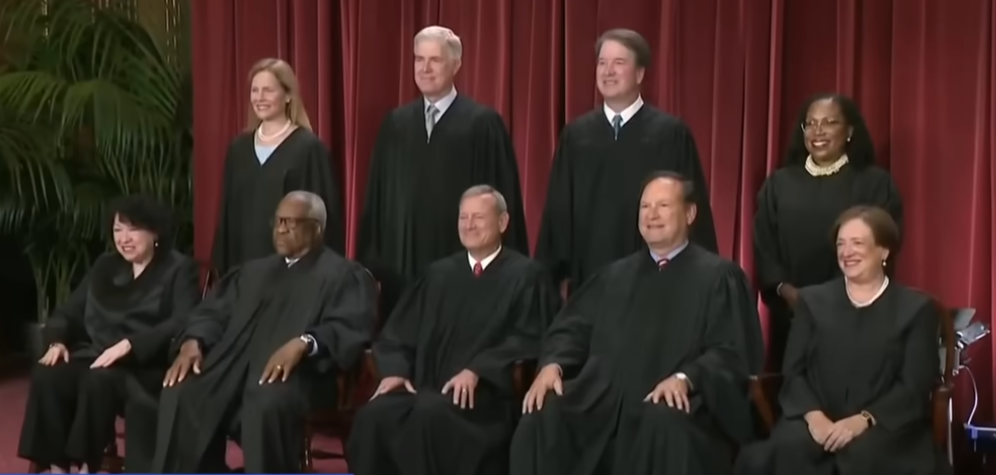The Supreme Court’s latest 5-4 decision marks a turning point for executive authority and immigration enforcement in America. In a dramatic win for President Trump’s administration, the justices ruled to allow the immediate deportation of Venezuelan nationals under the rarely-used Alien Enemies Act of 1798. This ruling isn’t just another legal debate—it’s a bold strike against the tide of judicial overreach that has increasingly troubled our nation.
Historical Context and National Security
The Alien Enemies Act is a centuries-old statute that grants the President sweeping powers during times of national conflict. Historically deployed during the War of 1812, World War I, and World War II, its revival under this administration is a firm declaration that protecting American communities from dangerous elements is non-negotiable. The administration has spotlighted the threat posed by alleged members of the Venezuelan gang known as Tren de Aragua, arguing they represent a real, present, and deadly menace. This ruling reinforces the belief that when it comes to national security, America must act swiftly and decisively.
Judicial Obstruction and Legal Challenges
Critics of the decision point to the contentious courtroom battle that preceded the ruling. U.S. District Judge James Boasberg had initially blocked the deportations, warning that hundreds of Venezuelans were being expelled without the due process our system promises. His extreme measure—even suggesting possible contempt charges against Trump administration officials—has been seen by many on the right as nothing more than a power grab by activist judges. As columnist Marc Thiessen of “The Washington Post” put it, this obstruction was merely part of the broader “new lawfare” strategy aimed at derailing the President’s agenda.
Supreme Court’s Narrow Decision
The decision was as razor-thin as they come, with Justice Amy Coney Barrett notably breaking from her conservative counterparts and siding with the liberal bloc to caution against unchecked executive power. Even within the highest court, the battle lines are sharply drawn, with the dissent underscoring the delicate balance between executive authority and judicial intervention.
Reactions from the Administration
The administration’s response was swift and unyielding. Homeland Security Secretary Kristi Noem celebrated the decision, declaring, “Today’s a bad day to be a terrorist in the United States of America.” Attorney General Pam Bondi hailed it as a “landmark decision” and lashed out against lower courts for attempting to hobble the President’s power to protect the nation. Vice President J.D. Vance echoed this sentiment, calling the ruling a clear “win for the American people.” For many staunch conservatives, these reactions resonate as a vindication against an ever-expanding judicial activism that threatens the very fabric of our constitutional order.
Jurisdictional Clarity and Future Implications
In a move that many conservatives applaud as common sense, the Supreme Court stipulated that any future legal protests against deportations must be filed in Texas—the actual detention site—instead of Washington, D.C. This directive minimizes the opportunities for activist judges in politically progressive regions to impose wide-reaching injunctions that, in their view, undermine the executive branch’s duty to protect American citizens.
Ongoing Legal Battles
Despite this hard-fought victory, the legal fight is far from over. Judge Boasberg continues to consider contempt charges against Trump administration officials, while Justice Sonia Sotomayor and her liberal colleagues remain deeply uneasy about due process concerns. Critics on the left argue that invoking the Alien Enemies Act without a formally declared war on Venezuela stretches constitutional bounds. Yet, for many on the right who believe in unwavering executive authority, this ruling is both a necessary and strategic correction to a judiciary that has, too often, played partisan politics instead of upholding the rule of law.
Reinforcing Executive Authority
This landmark ruling stands as a resounding reminder that when it comes to safeguarding national security, the President must be empowered to take bold, decisive action. The decision sends a clear message: district court judges should not be the arbiters of policy when decisions of national safety are on the line. By reining in judicial activism, the Supreme Court has tipped the scales back in favor of the executive branch—a move that, for many Republicans and patriots alike, feels not only vindicating but essential to preserving America’s constitutional integrity.
How do you feel about this decision? Do you think this will finally put an end to judicial activism on immigration policies?
WE’D LOVE TO HEAR YOUR THOUGHTS! PLEASE COMMENT BELOW.
JIMMY
Find more articles like this at steadfastandloyal.com.
h/t: Steadfast and Loyal
Source: Red Right Updates!




Leave a Comment